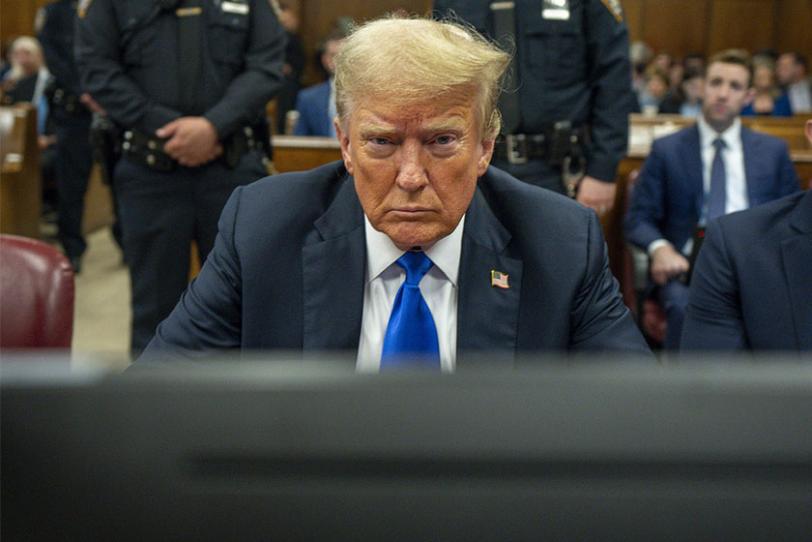
The Trump administration adopted an aggressive tariff policy on foreign trade, particularly targeting imports from countries like China, India, and Brazil. The administration argued that such tariffs would protect U.S. businesses and promote domestic industry development. However, as a lawsuit concerning the legality of Trump’s tariff imposition enters its final stages, U.S. businesses and the government may face a significant financial storm. If Trump’s tariff policies are deemed illegal, the U.S. may have to refund more than $200 billion in tariff revenue to businesses.
During his second term, Trump invoked the International Emergency Economic Powers Act (IEEPA) multiple times to impose high tariffs on goods from various countries. This act allows the president to take economic sanctions in national emergencies, but whether it can be used as a legal basis to impose tariffs on all imports became the subject of legal disputes. The court pointed out that the Trump administration did not have sufficient legal grounds to make these decisions.
After the U.S. International Trade Court issued its ruling, the Trump administration appealed to the appellate court. On August 24, the appellate court ruled that Trump’s imposition of tariffs was unlawful, laying the groundwork for future refund issues.
According to the court's decision, if the appellate court’s ruling is upheld, the Trump administration may have to refund over $200 billion in tariffs to U.S. businesses. The Trump administration has already indicated its intention to appeal to the Supreme Court, seeking to maintain the tariffs. Trump stated to the media, "If they make the wrong decision, it will be a devastating blow to our country." However, it remains uncertain whether the Supreme Court will hear the case and whether it will uphold the lower court's decision.
If the Supreme Court supports the lower court’s ruling, the U.S. government will need to take action to handle the refund process. Specifically, the government may choose to process refunds for all businesses collectively, require businesses to file individual lawsuits, or establish an administrative procedure for businesses to apply for refunds. Nonetheless, the refund process will be complicated and lengthy, making it unlikely to be resolved quickly.
Refunding these tariffs will undoubtedly have a significant impact on the U.S. economy. First, the reduction in tariff revenue will lead to an increase in the fiscal deficit. The Trump administration had used high tariff revenues to reduce the fiscal deficit during its tenure. However, if these revenues need to be refunded, the government will be forced to borrow more money to fill the gap. This could increase the issuance of U.S. government bonds, push up bond yields, and subsequently raise borrowing costs across the economy.
In addition, large-scale tariff refunds could put inflationary pressure on the economy. Since the government will need to raise more funds to make up for the tariff revenue gap, this could exacerbate the fiscal deficit and further drive up inflation. Given the current high inflationary pressure on the U.S. economy, the prospect of refunds could add to market uncertainty, affecting the confidence of both consumers and businesses.
Although tariff refunds may bring short-term liquidity to businesses, for many companies, it means they will face an uncertain waiting period. Businesses are eager to get their tariff payments back as soon as possible to address their day-to-day operating needs. However, while waiting for the final court ruling, many businesses can only protest administratively, requesting Customs and Border Protection to temporarily suspend tariff payments.
Some businesses have even considered selling their potential refund shares to investment firms while awaiting the final ruling from the court. This approach is akin to gambling, as refunds may not come through as smoothly as expected, and businesses may not receive the full amount. On the other hand, if refunds do arrive as anticipated, it would undoubtedly provide a substantial financial boost to these businesses.
Trump’s tariff policy is not only an economic issue but also has profound implications for U.S. politics and international relations. During his time in office, Trump sought to use tariffs as leverage to pressure other countries to alter their trade policies, especially with China, in response to what he claimed were "unfair trade" practices. As the courts gradually hear the case, the future of Trump’s tariff strategy is now in question.
If the court ultimately rules that Trump did not have the legal authority to impose these tariffs, the U.S. government will have to bear the cost of this policy mistake, and refunds will become inevitable. However, this also means that Trump’s trade policy will face a severe challenge at the judicial level, which could even impact future U.S. trade strategies under subsequent administrations.

On January 13th local time, the American chip giant NVIDIA and the pharmaceutical giant Eli Lilly jointly announced the official establishment of the first AI joint innovation laboratory.
On January 13th local time, the American chip giant NVIDIA …
On January 9, 2026, a subpoena from the U.S. Department of …
When Trump announced on TruthSocial a 25% tariff on Iran's …
Recently, according to reports from KGO TV of ABC and CalMa…
On January 13, 2026, the STOXX Europe 600 Index closed 0.2%…
A recent major trade policy adjustment proposed by the Unit…